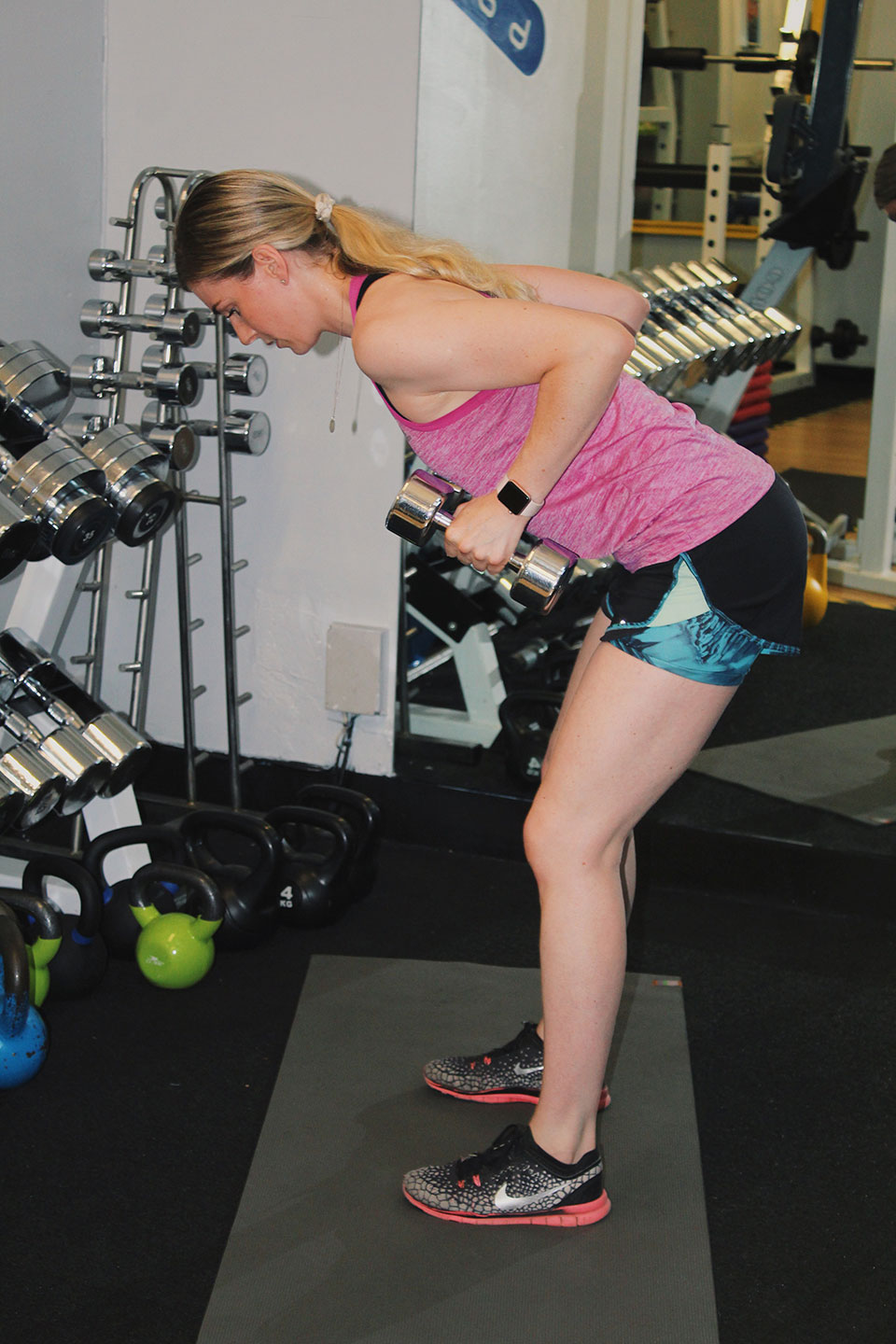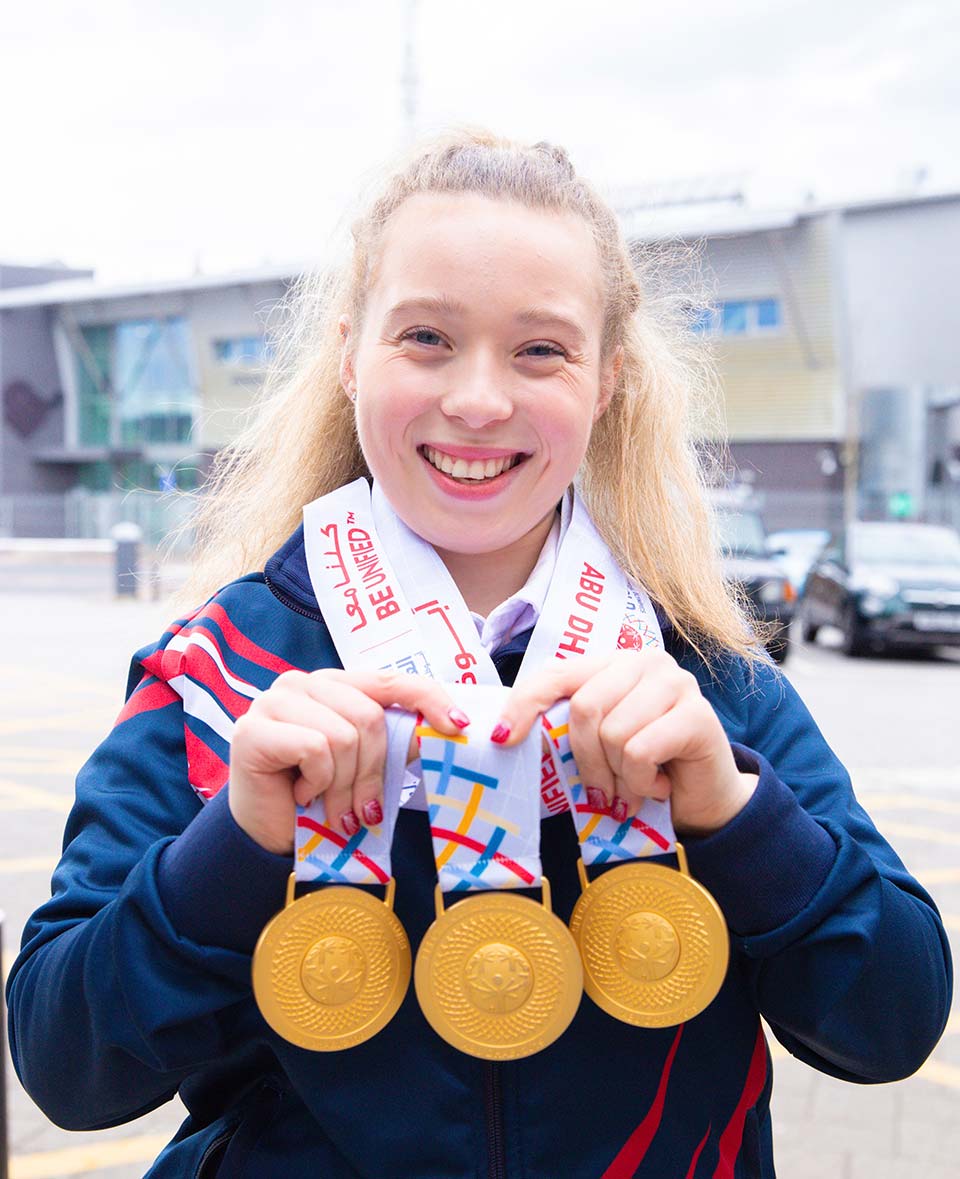As the year starts, thoughts turn to healthy resolutions. Fitness trainer Jade Mottley advises on making physical activity open to all, and Olympian cyclist Kiera Byland aims to inspire athletes.

Trainer Jade Mottley believes fitness should be more accessible – Photo: Jade Mottley
Everyone deserves the opportunity to take part in physical activity, and the new year is a great time to reflect and hit that reset button, writes Jade Mottley.
My advice is to start your journey today, and know that small steps – such as going for a quick walk or eating a piece of fruit – add up.
Many of those I have worked with since launching social enterprise Performance for All in 2015 face barriers simply because fitness professionals lack experience in training people with disabilities.
My approach is to ask someone what they can do, not what they cannot.
Working with a person with additional needs brings additional risks. Some coaches do not want or know how to deal with these. For trainers, it comes down to confidence; you adapt sessions and think outside the box.
Both trainer and client have to want to have fun, be safe and be willing to try.
Adapted sessions
Some people need visual cues added to a verbal instruction, such as counting on the fingers, or sessions may need adapting for wheelchair users. I once turned a wheelchair into a leg extension machine using a resistance band and a foam cylinder.
I ran “signed sweat” sessions in lockdown, securing funding for a sign language communicator.
My interest in inclusive sport began when I was at school, when I volunteered for a local disability charity. In my final year of a sports science degree, I worked at Mencap on a sports accessibility programme for children. This made me even more aware of the barriers.
I then did a master’s degree in Manchester. Standout moments included working at Manchester United FC’s deaf team, and with the Special Olympics as a training lead for its schools programme.
I worked as a personal trainer and nutrition coach with Special Olympian Kiera Byland.
We raised awareness of disability sport in the north west, talking in schools about activity and diet. Gaining National Lottery funding for this project eventually led me to set up Performance For All.
While the most common aim I hear is that people want to be healthier, reasons range from desires to be more confident and sociable to losing weight. See someone grow in confidence far outweighs what the scales show.
To know getting fitter has helped someone in other areas – such as by becoming more confident at work or going out for walks with family – it makes the 7am training sessions well worth it.
‘We need clubs to give us a chance’
As the year starts, thoughts turn to healthy resolutions. Fitness trainer Jade Mottley advises on making physical activity open to all, and Olympian cyclist Kiera Byland aims to inspire athletes.
The new year is a good time to start thinking about health and fitness. After having treats at Christmas and maybe eating more than you ought, you may be not doing the exercise you should. New year is the chance to start again and set goals, writes Kiera Byland.
My goals for 2023 are to inspire other Special Olympics athletes to have health and fitness goals. This includes having good mental health through the Special Olympics Strong Minds programme, which teaches mental exercises and provides resources to boost relaxation and stress management skills.
I am also passionate about the Special Olympics’ Fit 5 programme to boost healthy lifestyles and physical activity.
For people with learning disabilities to get into sport and fitness, we need clubs and coaches to give us a chance.
While you might be nervous, please be inclusive and give it go. You can learn so much from people like me – we have a lot to offer coaches through our own experiences and stories.
As a cycling and swimming coach, I can give back and inspire others by being a positive role model, whether this is helping them just to keep fit and healthy or to compete too if they want.
If someone is finding it hard to reach their sport or fitness goals, I would say: don’t set these too high or too low. Setbacks happen, so take a deep breath and take one day at a time.
Kiera Byland is a Special Olympics six times gold medallist, a swimming and cycling coach and a member of the Special Olympics global athlete leadership council

Kiera Byland: people with learning disabilities have a lot to offer coaches through their stories and experiences – Photo: bolton College
